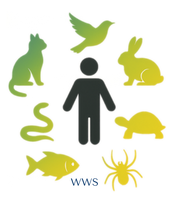How to Conduct a Comprehensive Health Check for Your Macaw or Large Parrot Species
- Tim Vincent
- Aug 19, 2025
- 3 min read
As a macaw owner, it is vital to conduct regular health checks to ensure your feathered friend remains healthy and happy. Macaws, like many birds, have a natural tendency to hide illness, making it essential to be vigilant and observant. This comprehensive guide outlines key areas to assess during a health check, common diseases to be aware of, and their symptoms.
1. Physical Appearance
Feathers
Condition: Inspect the feathers for any signs of damage, such as broken, missing, or ragged feathers. Healthy feathers should be smooth, shiny, and vibrant in colour.
Molting: While seasonal molting is normal, excessive feather loss or feather plucking may indicate stress, boredom, or health concerns.
Eyes
Clarity: The eyes should be bright and clear without any discharge. Look for any cloudiness or swelling around the eyes, which may signal underlying health issues.
Pupil Reaction: Check if the pupils respond to light; sluggish or non-reactive pupils can indicate health problems.
Beak
Shape and Texture: The beak should be smooth and well-formed, without cracks or overgrowth. A healthy beak is essential for eating and grooming.
Colour: Observe the colour; a dull or discoloured beak may suggest nutritional deficiencies or illness.
Feet and Nails
Condition: Examine the feet for swelling, redness, or lesions. Healthy feet should be clean and free of any abnormalities.
Nail Length: Ensure the nails are not overgrown, as this can lead to difficulty in movement and discomfort.
2. Behavioural Signs
Activity Level
Energy and Movement: A healthy macaw is typically active, playful, and curious. Sudden lethargy or reluctance to move can indicate distress or illness.
Social Interaction: Monitor your macaw's social behaviour. A sudden withdrawal from interaction with you or other birds can be a sign of illness, as macaws are naturally social creatures.
Vocalisation
Sound Patterns: Healthy macaws are vocal and expressive. Changes in vocalisation patterns, such as excessive quietness or unusual sounds, may indicate discomfort or illness.
3. Diet and Weight
Eating Habits
Appetite: Regularly check if your macaw is eating its food. A decrease in appetite or refusal to eat can be an early sign of health issues.
Diet Quality: Ensure a balanced diet rich in fresh fruits, vegetables, nuts, and high-quality pellets. A varied diet supports overall health.
Weight Check
Regular Weighing: Weigh your macaw regularly to monitor any significant changes in weight. Sudden weight loss or gain can indicate underlying health problems.
4. Droppings
Consistency and Colour
Normal Droppings: Healthy droppings should be firm, with a combination of colours (brown, green, and white).
Changes: Watch for changes in colour, consistency, or frequency of droppings. Diarrhoea, blood, or unusual colours can indicate digestive issues or illness.
5. Breathing
Respiratory Rate
Observation: Check for signs of laboured breathing, wheezing, or unusual sounds when your macaw breathes.
Nasal Discharge: Look for any discharge from the nostrils, which can indicate a respiratory infection. Healthy birds should have clear nostrils.
6. Common Diseases and Symptoms
1. Psittacosis (Parrot Fever)
Symptoms: Lethargy, ruffled feathers, nasal discharge, watery eyes, and respiratory distress.
Note: This bacterial infection can be transmitted to humans, so seek veterinary assistance immediately.
2. Avian Polyomavirus
Symptoms: Sudden death, lethargy, feather abnormalities, and swollen abdomen.
Note: Particularly affects younger birds, and vaccination is available.
3. Aspergillosis
Symptoms: Laboured breathing, coughing, nasal discharge, and lethargy.
Note: This fungal infection can be serious; prompt veterinary care is essential.
4. Gout
Symptoms: Swollen joints, limping, lethargy, and changes in appetite.
Note: Gout is often related to diet; consult a vet for dietary recommendations.
5. Feather-Plucking Disorder
Symptoms: Excessive feather loss, skin irritation, and changes in behaviour.
Note: This can be caused by stress, boredom, or underlying medical issues.
7. Signs of Stress or Illness
Hiding Symptoms: Remember that birds often hide their illnesses as a survival instinct. It’s crucial to be attentive to subtle changes in behaviour, appetite, and activity levels.
Changes in Routine: Any deviation from your macaw's normal routine, such as changes in sleeping patterns or decreased playfulness, should be noted and addressed.
8. Regular Veterinary Check-ups
Schedule annual check-ups with an avian veterinarian who specialises in birds. Regular health assessments can catch potential issues early and ensure your macaw receives necessary vaccinations and treatments.
Conclusion
Conducting regular health checks is crucial for your macaw's well-being. By monitoring these aspects and being aware of common diseases and their symptoms, you can help ensure your feathered friend remains healthy and happy. If you notice any concerning signs or symptoms, consult a veterinarian promptly for a thorough examination. Your vigilance and care play a significant role in your macaw's health and happiness..







Comments